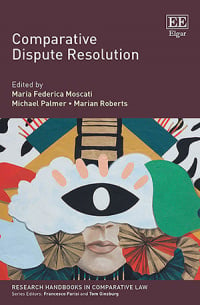The latest amendments to the International Chamber of Commerce (“ICC”) Arbitration Rules enter into force today, providing for a restyling to the 2012 rules (as earlier amended in 2017). The restyling aims to fine-tune the current rules by increasing flexibility, efficiency and transparency of the ICC arbitrations and taking in the practice that the International Court of Arbitration (“Court”) has meanwhile developed and consolidated.
This post briefly lists the main novelties.
1.Multi-party disputes (and disputes arising out of multi-tier contracts) will profit from an improved joinder and consolidation regime. The new rules entitle the tribunal, once constituted and upon request of a party addressed to the Secretariat, to join third parties after considering “all the relevant circumstances”, provided that the additional parties accept the constitution of the tribunal and agree to the Terms of Reference, where applicable (Article 7 (5)). Among the circumstances to be taken into account, the tribunal shall assess prime facie its jurisdiction over the additional party, the timing of the request for joinder, possible conflicts of interest and the impact of the joinder on the proceedings. As regards consolidation, it is also available in the case of two or more ICC arbitrations in which the disputed claims are made under multiple arbitration agreements (Article 10 (b)).
2.Yesterday a year closed which saw arbitration increasingly making use of virtual hearings and electronic filings, thereby experiencing a process of digitalization against the backdrop of the pandemic. Many benefits for the “good administration of arbitration” easily came into light, compared with the difficulties for arbitrators, parties and staff to personally meet.
Admittedly, the ongoing efforts to make arbitration resilient in these dramatic days should result in getting it more efficient (and cheaper) also in the upcoming post-pandemic era.
In this vein, the new ICC rules allow the tribunal to decide, after consulting the parties, that hearings can be conducted remotely (Article 26 (1)), thereby easing the proceedings conduct and adding to efficiency in the light of the circumstances of the case. The option for electronic submission is acknowledged for the Request for Arbitration, the Answer and any written communication.
3.Any revision, even the slightest, in the realm of arbitration always attempts to strengthen transparency, equality of parties, and enforceability of the awards.
Article 11 (7) compels parties to disclose any third-party funder (referred to as “any non-party which has entered into an arrangement for the funding of claims or defences and under which it has an economic interest in the outcome of the arbitration”). This will assist arbitrators in complying with their duties of impartiality and independence, while lessening the deal of information that parties habitually keep confidential. The aim to reinforce transparency, impartiality and independence also marks the contents of Article 17 (2) and Article 13 (6). The first empowers the tribunal to “take any measure necessary to avoid a conflict of interest” stemming from a change in party representation. The tribunal will act so only after giving an opportunity to the parties to comment in writing within a suitable period of time. Article 13 (6) takes care of impartiality and independence in the appointment of arbitrators in investment arbitration, requiring the prospected arbitrators not to have the same nationality of any party.
Transparency also underpins the amendment of Appendices I and II, which respectively gather the Statute and the Internal Rules of the Court. Particularly, Appendix II features new Article 5, which governs the communication from the Court of the reasons of its decisions. Only exceptionally may the Court refuse such communication.
With the view to protecting the equality of parties and the validity of the award, the Court may exceptionally appoint each member of the tribunal (Article 12 (9)). This power aims to discourage practices which threaten the validity of the tribunal constitution, such as drafting arbitration agreements with one-sided clauses for the appointment of the members.
4.A clarification has been inserted as to the tribunal’s power to render “additional awards” in case of claims that it “omitted to decide” (Article 36 (3)). Parties have to apply to the Secretariat for an additional award only in respect of “claims made in proceedings”.
5.Finally, fast track arbitration will be open to more transactions as the maximum dispute value to trigger expedited procedures raises from 2 to 3 US$ million for arbitration agreements concluded as of today. The chance to opt-in for applying the expedite procedure to higher-value disputes remains, as it does the opt-out and the Court’s assessment, upon request of a party, that the expedite procedure is inappropriate in the circumstances.
In the light of foregoing, it is apparent that, even if no full-blown revision unfolds to the arbitration community’s eyes, the listed “adjustments” are designed to benefit parties, arbitral tribunal and staff in the short and long term.



